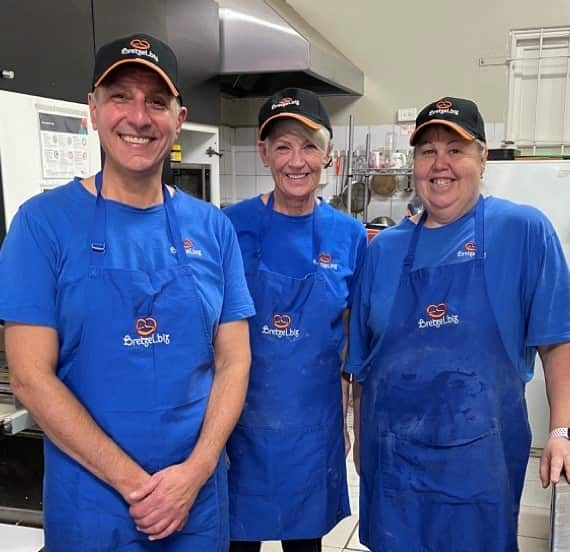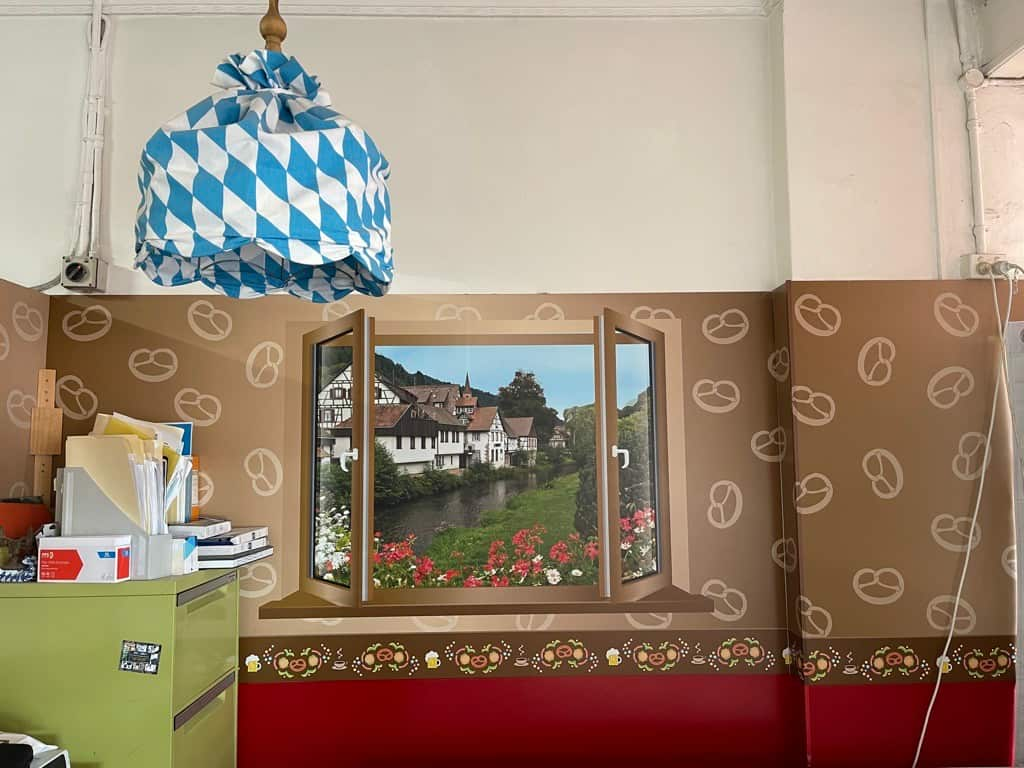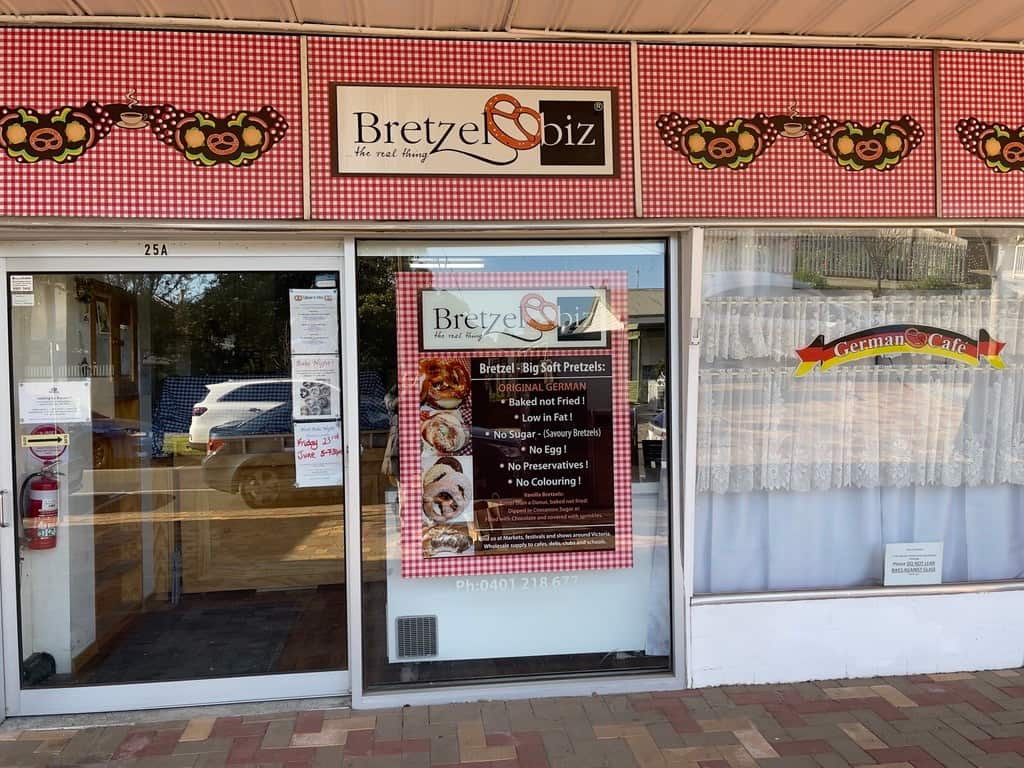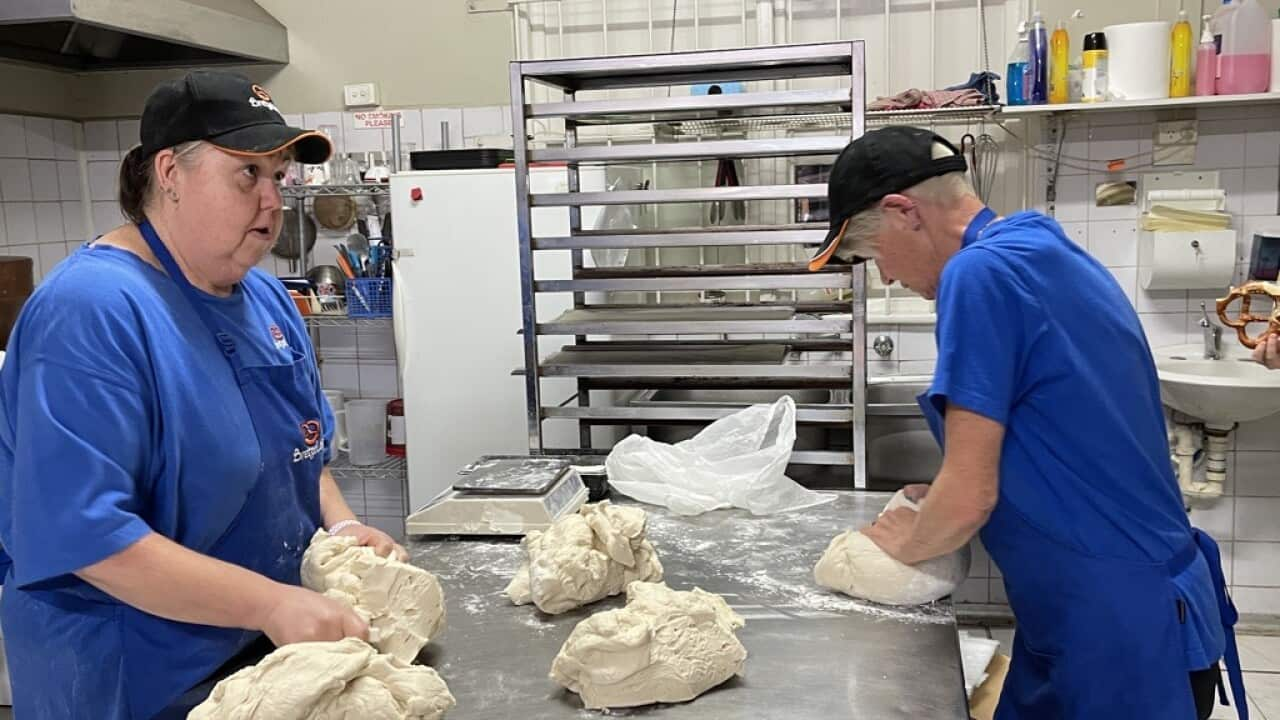The pretzel is a go-to staple when Germans crave a taste of home.
Whenever there is an event in the German-speaking community anywhere in Australia, you are sure to find pretzels.
During Oktoberfest, the annual German art and culture festival which begins on 16 September this year, the community gets ready to devour "almost a year’s supply" of the popular baked knot.
But not just any pretzel works for them: it must be as close to perfect as possible. It should be more bre(t)zel — as it is spelt in German — than pretzel.
The traditional skill is highly valued amongst the community, especially in southern Germany.
So much so that in 2022, the bakers’ guild of the German state of Baden-Württemberg applied to include traditional pretzel-baking amongst the country’s candidates for the UNESCO Intangible Cultural Heritage list.
So far, it has not made it to the list, but the pretzel remains popular as always.
Pretzels Down Under
Usually, the Australian version of the pretzel is too big, too chewy and too dense to serve as a remedy for homesickness to the German, Swiss and Austrian diaspora.
But some of the most popular pretzels found in Australia are produced not by Swiss, Austrian or German bakers.
An Australian couple with their small team claims to have "perfected the art of pretzel-making".

(L-R): Michael Santagati, Donna Love and Aleisha Bennett rolled thousands until they mastered the perfect pretzel. Source: SBS / Julia Grewe
In Melbourne’s South Kingsville, Michael Santagati and his partner Aleisha Bennett took over bretzel.biz about seven years ago from a German couple.
Of Italian heritage, Mr Santagati tells SBS German he has always had an association with cooking and baking.
During my many business trips to Germany, I learned to value beer and a good pretzel.Michael Santagati
His previous job took him to Germany quite a bit.
“I wanted a career change,” he says.
He and his wife, a chef by trade, jumped at the opportunity when it arose.
From mechanical engineer to pretzel baker
Ms Santagati’s professional background is in mechanical engineering.
In his bakery, it is clear how much his technical knowledge and attention to detail influence the final product — the pretzel.
“I’m very particular and methodical about things,” he says adding, “Aleisha is more of a chef who does things on the fly and tries [out] things.”
Since COVID, we have learned to do things smarter and better.Michael Santagati
Mr Santagati’s enginerring skills also come in handy when equipment breaks down, he mentions with a grin.
The pandemic, with its many lockdowns, has left its mark on the business.
There were 11 people working in the bakery before, but now only three remain employed on a normal day.
But COVID has not only had its disadvantages.
“Before COVID, we had five or six people in the bakery on a typical production night when we made 1,000 pretzels. Now, we have between three and five because we have learnt to do things smartly,” he says.
Secret recipe and precision
Over time, Mr Santagati and his team have streamlined the process of pretzel-making while keeping the most important part true to tradition.
They mix the dough according to a secret recipe in one of their huge dough mixers.
It then goes into a machine that divides the dough into 30 pieces. Each piece gets weighed by hand to ensure it has the precise weight.
After that, it goes through another machine that rolls it into a sausage. The next step is hand-rolling it into its well-known knotted shape.
The couple and their team rolled thousands of pretzels until they got it right.
For training purposes, they put down dots on the work surface which some of the staff still refer to. New staff can take about three to four months until they are up to speed.
After they are rolled into shape, the pretzels are then run through another machine that covers them with a highly alkaline solution which gives them their typical brown colour and salty taste.

The interior decoration of the bakery spoke of its previous German ownership, which the new owners have retained. Source: SBS / Julia Grewe
The knots are then baked and after they have cooled down, they either go out fresh for sale or into the shock freezer. They then are packed and put back into the freezer until they can be shipped.
During the pandemic, Ms Bennet and her team developed a home-baking kit which became so popular that the local post office could not keep up with the demand.
The post office had to open on a Sunday because it could not process our orders during working days.
“We went in there with trolleys and scanned each box,” Mr Santagati laughs.
The pretzel demographic
Mr Santagati’s business not only produces the traditional salty pretzel but also a range of sweet varieties.
The staff says they “continuously experiment with new flavours and listen carefully” to their customers’ feedback.
“We sell to all different nationalities and send our product as far as Queensland and Tasmania,” Mr Santagati says.

While the German owners ran a small cafe from their bakery, Mr Santagati and Co open it to the public only on Friday evenings. Source: SBS / Julia Grewe
According to the 2021 Census data, there are roughly 70,300 German-speaking people living in Australia.
So, is it mainly them, who buy the pretzels for a taste of home?
If you listen to Mr Santagati, the answer is "no".
“The majority of them are all different nationalities. We supply sweet pretzels to theme parks, for example. So, we cannot say we sell them to one demographic only," he explains.
Share
